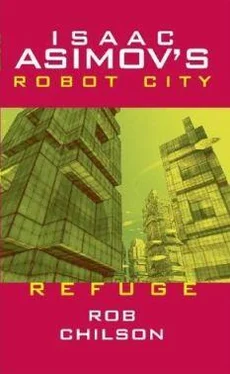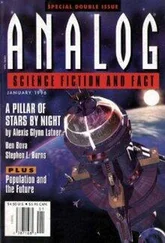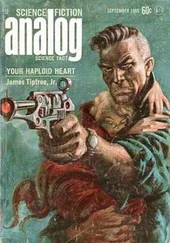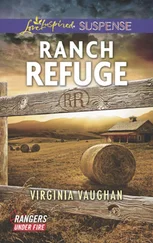Rob Chilson - Refuge
Здесь есть возможность читать онлайн «Rob Chilson - Refuge» весь текст электронной книги совершенно бесплатно (целиком полную версию без сокращений). В некоторых случаях можно слушать аудио, скачать через торрент в формате fb2 и присутствует краткое содержание. Год выпуска: 2004, ISBN: 2004, Издательство: I Books, Жанр: Фантастика и фэнтези, на английском языке. Описание произведения, (предисловие) а так же отзывы посетителей доступны на портале библиотеки ЛибКат.
- Название:Refuge
- Автор:
- Издательство:I Books
- Жанр:
- Год:2004
- ISBN:ISBN: 0-743-48716-8
- Рейтинг книги:5 / 5. Голосов: 1
-
Избранное:Добавить в избранное
- Отзывы:
-
Ваша оценка:
- 100
- 1
- 2
- 3
- 4
- 5
Refuge: краткое содержание, описание и аннотация
Предлагаем к чтению аннотацию, описание, краткое содержание или предисловие (зависит от того, что написал сам автор книги «Refuge»). Если вы не нашли необходимую информацию о книге — напишите в комментариях, мы постараемся отыскать её.
Refuge — читать онлайн бесплатно полную книгу (весь текст) целиком
Ниже представлен текст книги, разбитый по страницам. Система сохранения места последней прочитанной страницы, позволяет с удобством читать онлайн бесплатно книгу «Refuge», без необходимости каждый раз заново искать на чём Вы остановились. Поставьте закладку, и сможете в любой момент перейти на страницу, на которой закончили чтение.
Интервал:
Закладка:
“Ready,” he said at last. “Take the stick and drive us slowly out into the rnotorway.”
She did so, nervously. At the door, the machine slowed, a panel on its controls lighting with the words: IDENTIFICATION REQUIRED BEYOND THIS POINT. Derec did something, a relay clicked quietly, and the handler rolled smoothly out into the stream.
“So far, so good,” Derec said. “Nobody following.” Ariel turned to the right, guided them across the motorway to the proper lane, and they rolled slowly along toward the light. The traffic was fairly heavy, but moved slowly.
“Oh, almost-” Ariel said.
The light came from a vast open space where elephantine trucks trundled in and backed up to the loading docks. The handlers ran in and out of them, transferring their cargoes to small trucks, which took them to the freightways. Off to the right, a row of the huge trucks were disgorging golden grain into pipelines with a roar and a hiss of nitrogen.
“No good!” cried Derec. “Too many people. Pullover to the right, by those dumpsters. We’ll pretend to be inspectors or something.”
Sick, Ariel saw that he was right: There was little hope of seizing a truck unnoticed. The loading was done with smooth efficiency, though nobody seemed to move very fast. There were little knots of gossiping drivers and operators around. Men and women went around with clipboards, checking manifests. As soon as a truck was unloaded, it pulled out.
“Too bad we can’t find a clipboard or two,” Derec said.
Ariel thought that their shipsuits fit in pretty well, but wished they were cleaner. They had not thought to launder them-she had slept in hers, though the fabric didn’t show it.
They got out of the handler reluctantly, and stood looking about.
Ariel yearned for the open. They could go to the edge of the dock, drop their own height to the concrete, and walk perhaps a hundred or a hundred fifty meters, and find themselves at the opening.
“Might have expected these Earthers to block off the opening,” she observed. Light came in, but they couldn’t see out.
“They don’t even like as much of an opening as they’ve got,” said Derec. “Notice how they all stand with their backs to it?”
They did. Each little group was a semicircle facing away from the opening.
“Let’s go outside,” she said impulsively.
Derec hesitated. “It might not be easy to explain. It might not be easy to get back in.”
“Who wants to?” she said fiercely. “I just want to see sunlight one last time!”.
Derec looked at her, frightened, concealed it, and said gently, “All right, we’ll see what we can do.”
He led her across the dock space and peered up at the numbers and letters on the side of one of the mammoth trucks. It was damp, and had dripped a puddle under it. Ariel had had no idea of how big they were till then. Nodding wisely, Derec stepped to the edge, turned, and dropped off.
Ariel followed.
They strode briskly, as if they had business there, toward the front of the truck. Beyond lay the barrier. Trucks entered obliquely between overlapping walls, so that vision could not reach out to the frightening openness outside but the trucks could enter without opening and closing doors. Ariel suspected that the way zigzagged, so great was the fear they showed of the outside.
“Hey! Hey, you two!”
A group of men were walking threateningly toward them on the docks, gesturing them back. One turned and dropped off as they watched. “Come back here!”
“Run!” said Derec.
A big wet truck erupted from the barrier even as they began to run, and they swerved. They found themselves running toward the grain trucks dropping their cargoes from their bellies.
A sign hovered in the air before them: WARNING: OXYGEN REQUIRED BEYOND THIS POINT!
Ariel remembered reading somewhere that grain dust could explode if liberally mixed with air. They stored it in nitrogen to prevent that. But, she observed, stricken with fear, the men working here were not wearing masks.
Derec led her on a route that avoided them-these workers looked up curiously but did not join the chase immediately-and they ran through the first dust cloud, then through the second.
“Not good enough,” he said, as they paused, panting. Ariel tried not to cough; the dust was in her throat.
“Back up on the docks,” she wheezed, and he nodded, led the way. With a grunt they were up, between trucks. The grain trucks didn’t back up to the actual docks, which were quite narrow here. The whole area was fogged with dust.
They heard a shout, “Damn thieves,” and looked back.
They had not been seen yet, but it was only a matter of time. The space beyond the dust cloud was a bedlam of whistles, shouts, and pounding feet. A big truck pulled away, its great wheels churning up more dust but making no sound.
A shout, something about laying the dust, came to them. Ariel couldn’t get her breath. We need oxygen, she thought, and wanted to cough worse than ever. Out there they were coughing, too.
Red lights flamed overhead and a deep-toned horn sounded. Ariel looked up apprehensively to see yellow signs beside the red lights: SPRINKLERS…SPRINKLERS… SPRINKLERS…
“Back in here, quick!” Derec cried, and pulled her back behind a tangle of implements, broken handler trucks, dustbins, and the like.
Water spurted in a fine spray from the overhead, laying the dust immediately. A blue-clad man was among the truck drivers and dock workers; he carried a now-familiar club.
“A cop!” Derec said, groaning.
Ariel had glanced at him. And saw, beyond him-
“A door!”
“Where?”
“There, behind that tire.”
The tire, a huge thing in bright-blue composition, discarded from one of the trucks, marked the end of the dump they were crouched in. There was a passageway by it to a small door.
In a moment they were trying it, and before the sprinklers cut off they were in a small, dim hallway with only one out of three lights burning.
PIPELINE CONTROL SECTION: NO ADMITTANCE TO UNAUTHORIZED PERSONS. But the hall led past. Farther on, they saw: GRAIN BULK SUPPLY RATIONALIZING BALANCING.
“Administrative controls on the basic levels.” said Derec, and Ariel thought of the men and women with clipboards.
“But there’s nobody here,” she said.
“Well, cities grow and change; these may be abandoned, or only needed periodically. The important thing is they may have access above-”
They did.
At the upper level, they found that they were far from the docks, to which they knew better than to return, but were not gone from the barrier yet. The motorways used by emergency vehicles also reached at least to the entry.
Beside the motorway was a pedestrian access door; the motorway door had no controls and probably opened by radio. Once through, walking nervously on the motorway, they found to their frustration that the way avoided the entrance, swooped, and dived down to the lower levels.
“It’s for emergency vehicles,” said Derec. “Ambulances, and so on. Accidents must be common on the docks.”
Presently, they did find a half-concealed route that took them to the opening, and they looked out and down.
It was pouring with cold rain.
Even then Derec didn’t give up, but Ariel’s mind refused to record the details of the rest of the day. For several more hours he kept them prowling around the area, always trying to find a way to get at a big truck. But he could find no garage for them within the City and doubted seriously if there was one near to it.
Finally Ariel pleaded hunger and they gloomily rode the ways back to their section kitchen, able at least to sit down. Ariel felt doomed; one look at the cold gray rain falling endlessly outside had chilled her on some deep, basic level. She knew it was the last she’d ever see of the sky. For Derec, she felt sad, but was too tired to speak.
Читать дальшеИнтервал:
Закладка:
Похожие книги на «Refuge»
Представляем Вашему вниманию похожие книги на «Refuge» списком для выбора. Мы отобрали схожую по названию и смыслу литературу в надежде предоставить читателям больше вариантов отыскать новые, интересные, ещё непрочитанные произведения.
Обсуждение, отзывы о книге «Refuge» и просто собственные мнения читателей. Оставьте ваши комментарии, напишите, что Вы думаете о произведении, его смысле или главных героях. Укажите что конкретно понравилось, а что нет, и почему Вы так считаете.












